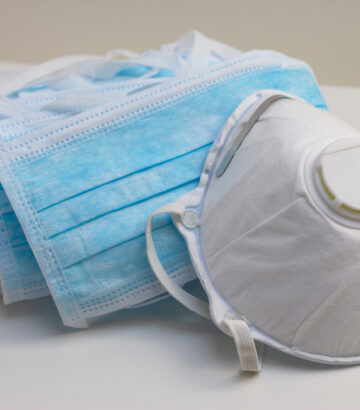Signing up and participating in the HICPAC meeting
Thank you for your interest in signing up for the HICPAC meeting. Here is the link to signup: https://www.cdc.gov/hicpac/meeting.html
Below are instructions to help guide you through the signup process and participation:
1. Meeting Purpose:
The primary purpose of this registration drive is to respond to HICPAC’s proposed health- and life-threatening policy with both expert and public commentary. This policy seeks to weaken patient and provider protections in healthcare including by advocating surgical masks for diseases that require N95 respirators and disregarding other science-based precautions. Your participation will help demonstrate support for patient safety and advocate for effective infection control measures.
2. Who should sign up:
- This meeting is open to everyone concerned about being infected by preventable infectious diseases in healthcare settings, including patients, caregivers, healthcare workers, and visitors.
- International participation is also valued as HICPAC guidelines affect infection control globally.
3. Required fields when signing up include:
- Registration status: Indicate your status (e.g., “member of the public”).
- First name and second name: If you do not want to provide your name, use your first name and last initial or a pseudonym.
- Degrees: Indicate any degrees you hold or type “N/A” if none.
- Title: Provide your position title or choose from options like Prof./Dr./Mr./Ms/Mrs./Mx.
- Affiliation: State your organization if applicable or specify that you represent yourself.
- Email: They ask for a business email, but it should be OK to use a personal email address.
- Phone: If comfortable, provide your phone number. You can enter “N/A” if not.
- Comment: Indicate whether you plan to make a public comment during the meeting.
- If so, explain: Briefly describe the topic of your presentation, such as infection control policies in healthcare.
Those with accessibility issues can request others to help them sign up.
4. Options for making comments:
To submit an oral comment during the Zoom meeting of 3 minutes or less, please follow these steps:
- Join the Zoom meeting at the designated time.
- Raise your hand when they call for public comment.
- Wait for the organizer to give you permission to speak.
- State your name and affiliation (if appropriate) at the beginning of your remarks
For public comments, the last meeting allocated 3 minutes to each person, equivalent to around 375 words. It is best to prepare comments ahead of time and rehearse them a few times so that you do not need to rush and they will fit within the allotted time.
To submit a written comment in addition to or instead of the oral comments, please do so by August 25, 2023 to hicpac@cdc.gov. Written comments, not to exceed one page, should contain:
- the submitter’s name
- address
- organizational affiliation
- topic being addressed.
5. Talking points:
- Guidelines should recognize that adopting effective prevention measures has important implications for the health of patients and healthcare workers. There is no room for compromise on safety, any more than laxity in providing any medical care is tolerated.
- Guidelines should be based on the precautionary principle, which emphasizes the need for policy makers to prioritize risk reduction. Unlike individual decision-making, policy decisions have wide-ranging impacts on society, necessitating a greater emphasis on minimizing potential risks for many people.
- Development of infection control guidelines should include experts across disciplines studying airborne transmission.
- Development of infection control guidelines should involve those who are most at risk including patients and healthcare workers and their representative organizations.
- Guidelines should fully adopt established science of airborne transmission and its prevention. This includes using effective masking including N95 respirators, elastomeric respirators, and PAPRs. There is no justification for adopting non-airborne precautions for airborne pathogens.
- Guidelines should include comprehensive measures including ventilation and HEPA air purification, masking, testing, and minimizing unnecessary sharing of air of those who might be infected with those who are susceptible.
- It is appropriate to communicate personal experiences in engaging with the healthcare system and the risk of infection to point to the need for high levels of safety and that those who are at risk should be participating in the policy making process.
- NNU has put together some important talking points https://docs.google.com/document/d/1GVvo0a3qru_1IcpO56Nj4VW3waNdwXapjFTAopwNjxY/edit
- The comments that were made at the June HICPAC meeting also carry some important messages and illustrate the process that is likely to occur. Note that the August 22 meeting is fully on zoom:
Thank you for considering participation in the HICPAC meeting. Your involvement is crucial to shaping infection control policies and ensuring patient safety.











